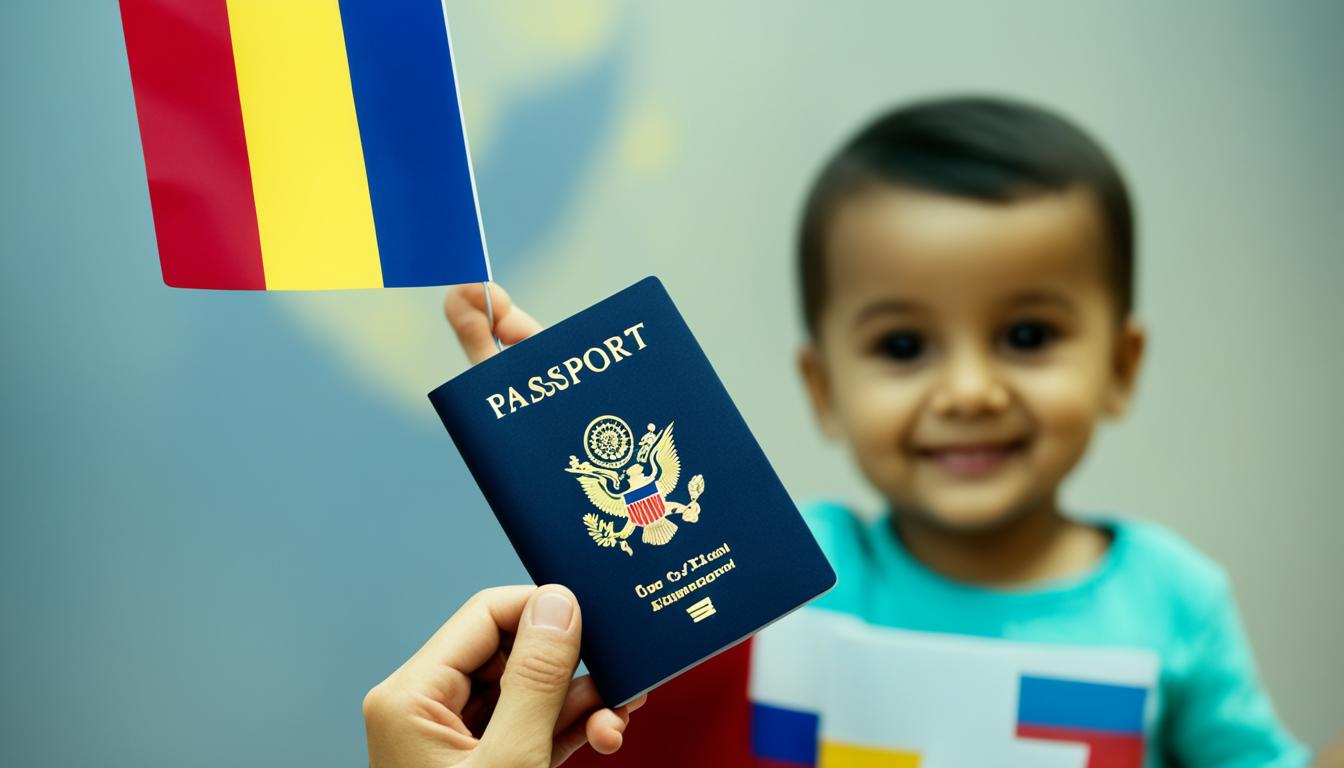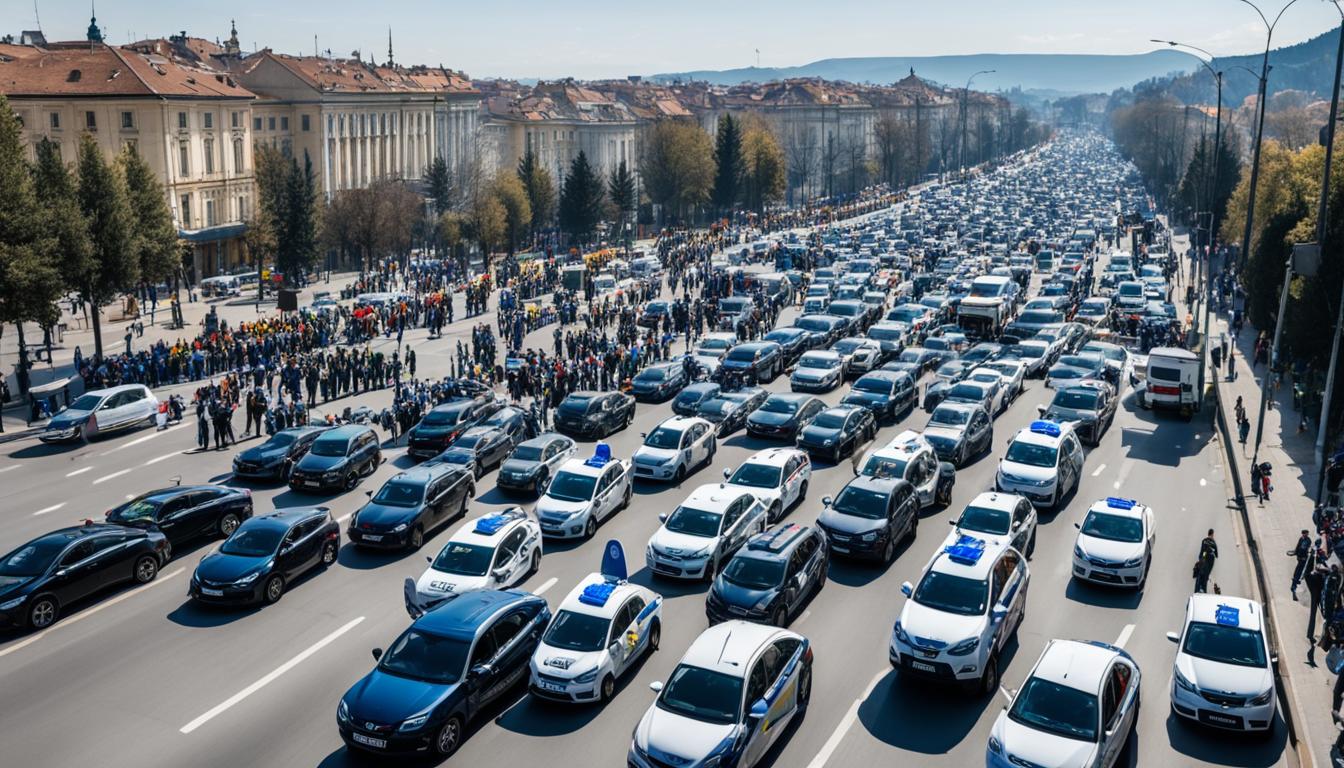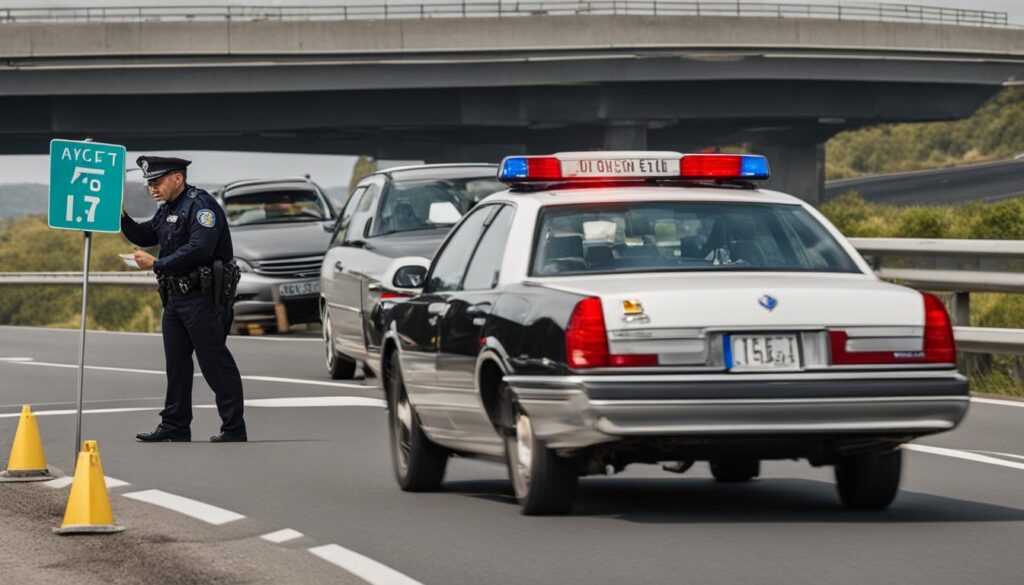Traveling with Minor Children: Exit Requirements in Romania
Traveling with Minor Children: Exit Requirements in Romania
If you’re planning on traveling with minor children outside of Romania, it’s essential to familiarize yourself with the legal requirements.
Romanian authorities enforce stringent rules to ensure the safety and welfare of their youngest citizens while traveling.
Understanding these regulations will allow for a smooth and hassle-free travel experience while adhering to all necessary immigration regulations and border control protocols.
In order to facilitate international travel with Romanian minors, parents or legal guardians should be aware of the necessary travel documents required both for exit and entry purposes.
Not only do these measures ensure the child’s safety, but they also conform to international regulations governing the travel of children.
Key Takeaways
- Romanian authorities enforce strict regulations for traveling with minor children.
- Understanding Romanian law is crucial for smooth navigation of immigration and border controls.
- An awareness of required travel documents is necessary for international travel with Romanian minors.
- Adherence to safety measures ensures a hassle-free travel experience.
- Preparation and proper documentation can prevent potential travel disruptions.
Understanding Romania’s Legal Framework for Minor Travel
Traveling with a minor is no small feat, especially when you’re up against legal nuances and formal requirements.
A crucial piece of the jigsaw is understanding Romanian laws that regulate minors traveling abroad. Let’s explore Law No. 248/2005 and the significance of parental consent in minor travel.
Overview of Law no 248/2005
At the core of legal requirements for traveling with Romanian minors lies Law No. 248/2005.
This law mandates that Romanian minors under the age of 18 must possess individual travel documents.
Additionally, it calls for clear parental consent for international travel.
Depending on the traveling dynamics, a declaration from the non-accompanying parent(s) or proof of sole custody may also be necessary.
If a minor is traveling with an adult who isn’t their parent, a notarized letter from both parents is obligatory, highlighting the companion’s details along with the plan of the journey.
The Role of Parental Consent in Minor Travel
Parental consent is an integral part of Romanian minor travel regulations.
The consent must be all-encompassing, specifying the destination, duration, and purpose of the trip.
It should also include the details of the custodian abroad if the minor isn’t returning to Romania with the person they left with.
It’s not about ticking off a checklist, but about ensuring the welfare and safety of the minor throughout their journey.
These rules are not to tie you down, but to provide a travel authorization with the best interest of the child in mind.
The Essential Travel Documents for Romanian Minors
Traveling abroad with Romanian children involves understanding Romania’s stringent travel laws.
While this may be tiresome, it is essential to note that it serves as a protection measure for the children.
Let’s delve in and unpack the primary documents needed for a smooth, stress-free journey.
Passports and ID Cards for International Travel
One of the significant travel documents required by Romanian minors for international journeys is a valid passport or ID card.
From a legal standpoint, these two pieces of documentation are indispensable as they authenticate the identity of the minor at checks.
For Romanian children traveling abroad, issuing a passport becomes a crucial starting point, ensuring the minor’s identification isn’t compromised at any international checkpoint.
Notarized Consent Letters: When and Why?
A common scenario during travel involves minors accompanied by a single parent or an adult who isn’t their legal guardian.
In these situations, a notarized consent letter from legally authorized individuals proves pivotal in satisfying the travel framework.
This consent letter serves as an endorsement for the minor’s travel specifics, bearing the duration and purpose of the trip, as well as the assigned adult companion’s details.
At the heart of these travel document requirements lie both the welfare and safety of the children.
Thus, anyone planning a trip with a Romanian minor must familiarize themselves with these provisions, to make their experience hassle-free and compliant with all Romanian travel regulations.
Scenarios for Travelling with a Romanian Minor Child Outside of Romania
When traveling with a Romanian minor without a parent, multiple circumstances must be considered.
These different scenarios require distinct documentation reflecting the traveling conditions per Romanian laws.
Each situation that involves traveling abroad with Romanian minors can drastically differ, and as a result, is guided by respective requirements:
- Traveling with both parents
- Traveling with one parent
- Traveling with an adult, who is not a parent.
Consider the following scenarios:
| Scenario | Required Documentation |
|---|---|
| Accompanied by both parents | No additional documents are needed in Romania |
| Accompanied by one parent | A notarized consent letter for traveling with Romanian minor children from the non-traveling parent. |
| Accompanied by an adult who is not a parent | A notarized consent letter from both parents or the legal guardian. |
Knowing the entry and exit requirements for Romanian minors is imperative.
It ensures the minor’s safety, compliance with the legal system, and most importantly, a smooth and hassle-free journey.
Preparation is key in these situations, and understanding these requirements becomes a guardian’s responsibility when traveling with Romanian minor children.
Procedures for Obtaining Consent and Notarization
Traveling with a Romanian minor abroad entails a certain process to ensure legal compliance.
A critical component of these procedures, as stated in Romanian travel regulations, involves obtaining proper consent and notarization.
This aims at protecting the minor’s well-being and rights during their international travel.
Visiting a Civil-Law Notary Office
One of the initial steps of the journey commences at a civil-law notary office.
When you visit this office, you must have detailed information prepared about your planned trip with a Romanian minor.
A declaration of consent prepared before the notary must comprehensively encompass the minor’s full name, date of birth, passport number, travel dates, purpose, destination(s), and your relationship to the minor.
In addition, the document should provide comprehensive particulars of the adult traveling with the minor.
The Apostille and Legalization Process
Post-notarization of the consent, the procedure may demand further legalization.
This primarily depends on the regulations of the destination country.
Several countries recognize the Hague Apostille, which validates the notarized consent declaration for international use without further legalization.
Conversely, some nations seek full legalization by their embassy after the Apostille.
Thus, it becomes crucial to inquire and comprehend the specific requirements of your destination country to streamline your travel preparations for a Romanian minor.
Consider these procedures as a necessary step ensuring a smoother journey, and factoring in these legal regulations for traveling with Romanian minors can contribute to a hassle-free experience.
International Transit: Ensuring Compliance Beyond Romania
Navigating the international travel landscape with Romanian minors.
While Romania has outlined certain requirements for minors leaving its borders, it’s important to remember that transit and destination countries may hold their own set of rules.
This often includes airline-specific documentation or transit forms specifically for minors.
Your diligence towards these nuances could be the deciding factor between a smooth journey and unexpected hurdles at various checkpoints.
Knowing the processes involved can also save you from unwanted surprises and last-minute panic.
Here are two essential considerations regarding international transit with Romanian minors:
- Transit Countries Regulations: Any country that your journey involves could potentially require additional paperwork or have specific entry/exit rules for minors. Whether it’s a country you’re briefly stopping over at or your final destination, it’s vital to get informed about these rules well in advance.
- Airline Policies: Similarly, different airlines may have distinct policies when it comes to traveling with minors. Some may need additional proof or consent forms, while others might have age restrictions or require a designated escort. Be sure to contact your airlines and get a thorough understanding of their guidelines.
Adhering to the travel requirements for Romanian minors beyond Romanian borders may seem daunting, but adequate preparation can ease the process significantly.
Being well-informed about the documentation for travelling with Romanian minors can lead to a stress-free travel experience.
Always remember, a smart traveler is one who is well-prepared, well-informed and compliant with international travel norms.
Special Considerations for Solo and One-Parent Travel

When traveling abroad with Romanian minors, whether the child is alone or accompanied by just one parent or a guardian, there are additional considerations to make to ensure a smooth journey.
Worth noting is the importance of securing parental consent for international travel with Romanian minors, especially if they are traveling alone or with someone who isn’t their legal guardian.
Departing Alone or with One Parent
When a Romanian minor is traveling alone or with only one parent, a notarized declaration of consent from the other parent is often required.
The declaration affirms that the absent party has given their permission for the minor to travel.
It’s essential to understand the specific requirements for this declaration, as a lack of compliance could lead to complications at immigration checkpoints.
Accompanying Adults Who Are Not Legal Guardians
It’s not uncommon for a minor to travel with an adult who isn’t their parent. In this scenario, even stricter protocols exist.
The accompanying adult must have a notarized declaration of consent from both parents or the minor’s legal guardian.
This document validates the caregiver’s authority to accompany the child during travel.
Remember, requirements may vary in distinct countries and airlines.
Thus, it’s advisable to thoroughly understand the required forms and requirements necessary for such travel situations.
Consult with Romanian legal experts to ensure successful compliance with these stipulations when traveling with minors from Romania.
Air Travel Specifics: Airline Policies and Practices
When it comes to international travel, being informed about each airline’s specific regulations and practices regarding minor passengers is essential.
Knowing your chosen airline’s policies in advance can avoid last-minute hiccups and ensure a smooth transition from ground to air.
Checking with Airlines Before Departure
Each airline may have unique requirements and specific forms needed for minor passengers, especially when not accompanied by both parents.
Apart from the generically required travel documentation for Romanian children, these requirements could involve informing the airline of the minor’s travel or filling out specialized consent forms.
Making such proactivity a part of your travel tips for Romanian parents with minor children can significantly ease the journey forward.
Dealing with Last-minute Policy Changes
It’s important to stay updated about any policy revisions in your chosen airline.
These changes can be unexpected and last-minute, but they can cause significant disruptions to travel plans if not swiftly addressed.
Having a channel for timely updates on airline policies is hence crucial.
| Airline | Minors’ Policy | Forms Required |
|---|---|---|
| Tarom | Passengers under 12 traveling alone need to use the Unaccompanied Minors service | UM handling advice form, Indemnity form |
| Blue Air | Unaccompanied Minors service available for children aged 5–14 | Parental consent form, ID documentation |
| Wizz Air | Minors under 14 need to be accompanied by a passenger aged 16 or above | Standard travel documentation |
| Ryanair | Travelers under 16 need to be accompanied by an adult | Current passport/ID card |
By ensuring your child’s travel documentation fully adheres to airline policies, parents minimize the risk of travel disruptions and consequently make the journey more relaxed for all involved.
Entry and Exit Requirements for Romanian Minors
International travel with Romanian children involves more than just planning your itinerary. In compliance with the rigorous legal structure of Romania and foreign nations, it’s essential to understand the passport, visa, and entry-exit requirements for Romanian minors.
This will help ensure a smooth, hassle-free travel experience.
Let’s delve into the specifics.
Passport Validity and Schengen Area Transit
Irrespective of their age, Romanian children are required to have individual travel documents.
Their passports must have a validity that extends beyond their travel dates.
This is especially crucial if you’re journeying through or to countries in the Schengen Area.
The Schengen regulations require passports to be valid for at least three months beyond the planned departure date from the Schengen area.
Remember, each country might have additional demands regarding passport validity.
| Passport Requirement | For Schengen Countries |
|---|---|
| Passport Validity | 3 months beyond the planned departure |
| Blank Passport Pages | At least one page for entry stamp |
| Tourist Visa Required | Not required for stays under 90 days |
U.S. Citizens and Dual Nationals: Special Rules
In the case of U.S. citizens or dual nationals traveling with Romanian children, specific guidelines need to be addressed.
As per Romanian and U.S regulations for international travel, consent from both parents or guardians is essential for Romanian minors. In situations where one or both parents are U.S. citizens, US law may also apply, especially if the child holds dual nationality.
Therefore, ensuring comprehension of the specific entry and exit rules for such cases can facilitate a smoother journey.
Lastly, ensure that all of these requirements are met ahead of time to allow for any unexpected situations.
Bear in mind, vigilance and preparedness are key to ensuring unhindered international travel with Romanian minors. Safe travels!
Overstays and Legal Consequences in Romania
Understanding the implications of overstaying and the penalties that come with it is crucial when planning travel.
It’s imperative to be aware that overstaying can result in severe legal consequences, such as fines, exit permits and re-entry bans, and it can impact your travel experiences to Romania in the future.
This section provides some essential tips for parents of Romanian minors abroad, highlighting the immigration regulations related to overstaying.
Here is an overview to help you navigate potential situations and learn how to respond accordingly.
Exit Permits and Fines for Overstaying
The first step in understanding the implications of overstaying involves recognizing that exiting the country after your visa has expired is not as simple as just booking a flight and leaving.
Overstays are met with potential penalties such as fines that must be settled before you can exit Romania.
While planning your stay and even during your time in the country, it’s wise to stay vigilant and keep track of the duration of your visa.
Once you’ve overstayed, an exit permit from the Romanian Immigration Office will be demanded. This permit can be a proof of penalty paid as well as a formality to maintain record-keeping.
Re-entry Bans and Appeals
Violating the terms of your visa might result not only in fines but also in re-entry bans.
The latter is even more daunting, as it can limit your travels to Romania for a certain period of time.
The imposing of re-entry bans is a legally-mandated consequence, meant to serve as a deterrent for future visa violations.
However, waivers can be appealed in particular circumstances by providing reliable reasons for the inability to comply with stay duration requirements, such as unforeseen medical emergencies or delayed documentation.
| Legal Consequence | Description | Actionable Advice |
|---|---|---|
| Overstay Fines | Fines imposed for staying beyond the visa or permit duration. | Pay the fines promptly to avoid additional penalties. |
| Exit Permit | Required document from the Romanian Immigration Office after an overstay violation. | Obtain this as soon as possible after settling all fines. |
| Re-entry Ban | Penalty restricting your re-entry into Romania for a specified period. | An appeal can be filed proving valid extenuating circumstances, like medical emergencies. |
Stay aware, stay informed, and most importantly, respect the immigration regulations of the country you are visiting.
Traveling should be an exciting and enjoyable experience, not marred by avoidable legal hassles. Understand the laws, follow them carefully, and ensure a smooth, unforgettable journey.
Your travel stories should be full of adventures and discoveries, not overstays or legal troubles.
Ensuring Smooth International Travel with Romanian Minors
Traveling with minor children requires meticulous planning, especially when it comes to adhering to strict legal requirements.
This is particularly pertinent when it comes to Romanian parents traveling with their minor children.
On top of packing essentials and planning out the travel itinerary, understanding specific travel protocols for Romanian minors is equally crucial.
The Romanian law stipulates specific requirements for minors leaving the country, including having the necessary travel documentation and obtaining proper parental consent.
Failures to adhere to these regulations not only risk inconveniences at the border control but can also result in legal consequences.
Hence, you must understand these requirements in detail and take necessary action before departure.
Here are a few travel tips for Romanian parents with minor children that can guide you:
- Secure Travel Documents: Ensure children have valid passports or ID cards for international travel.
- Obtain Parental Consent: If the child is traveling with one parent or an adult who is not the legal guardian, a notarized consent letter from the non-accompanying parent(s) or legal guardian(s) is necessary.
- Consult Romanian Lawyers: For more complex situations or if you have any doubts, consult professional Romanian lawyers or a trusted Romanian law office for guidance. They can help ensure you’re adhering strictly to Romanian travel regulations for minors.
In conclusion, every detail matters when preparing for international travel with Romanian minor children.
By following these essential travel tips, you’ll be setting the stage for a smooth, stress-free journey.
Consultation with Romanian Law Offices
In consultation with a Romanian lawyer, you’ll review all necessary procedures, ensuring you’re not only aware of them but also understand how to execute them effectively.
Discrepancies or misunderstandings of the legal framework for minor travel can lead to unpleasant circumstances like interjected journeys or legal implications.
But with a competent Romanian law office guiding you, these potential roadblocks can be effectively mitigated, if not altogether avoided.
Travel With Romanian Minors – FAQ
1. What are the entry and exit requirements for minors traveling from Romania?
When traveling from Romania, Romanian minors are required to possess a valid travel document, typically a passport.
Additionally, they may need to adhere to specific regulations set forth by the Romanian border police as well as the authorities of the destination country.
It’s important to research the entry and exit requirements for Romanian citizens traveling abroad to ensure a smooth journey.
2. Can a minor child leave Romania without being accompanied by a parent or legal representative?
In general, unaccompanied minors may face restrictions when attempting to leave Romania and may be required to obtain special permissions, such as a notarized declaration from the other parent or legal guardian.
It’s essential to be aware of the specific regulations pertaining to children traveling alone from Romania and ensure compliance with all necessary requirements.
3. What is the process for one parent to travel abroad with a Romanian minor?
When one of the parents intends to travel abroad with a Romanian minor, they may need to provide consent of the other parent or legal guardian.
This consent could involve notarization or other formal procedures, and it’s essential to understand and fulfill all relevant requirements before departure.
4. What are the regulations for minors traveling within the Schengen Area?
Minors traveling within the Schengen Area may need to comply with specific regulations, which can include providing consent of parents, a notarized document, or other forms of approval.
Additionally, there may be restrictions on unaccompanied minors entering or leaving the Schengen Area, so it’s crucial to be well-informed about the applicable laws.







